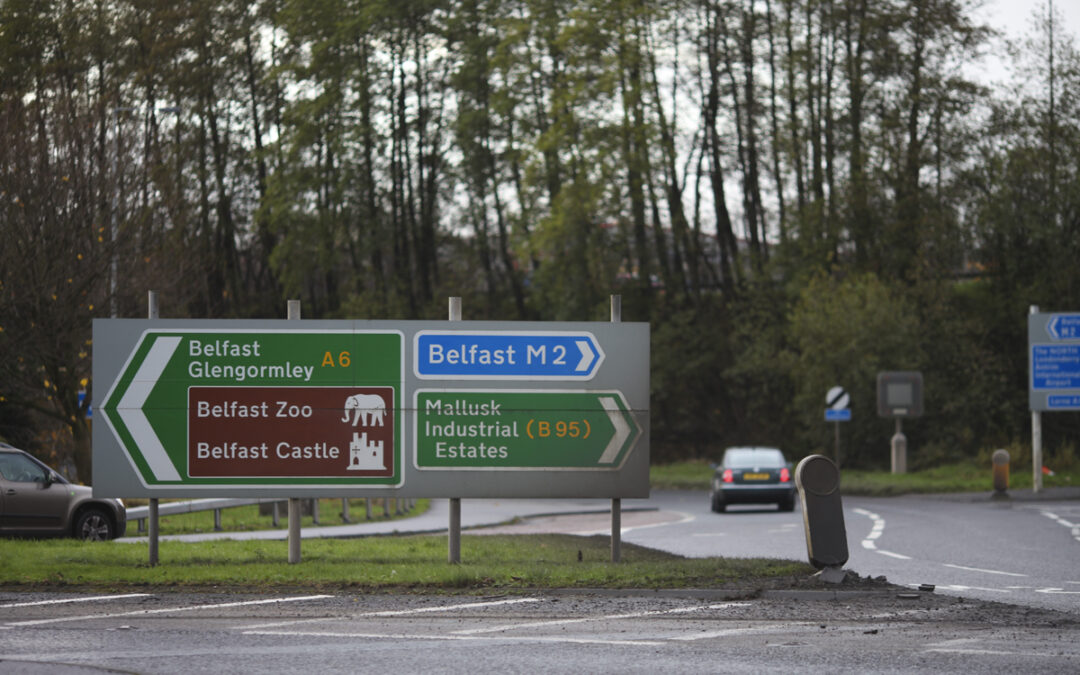We live on the edge of North Belfast. Recently I picked up a copy of Feargal Cochrane’s book ‘Belfast – The Story of a City and its People.’ A final chapter entitled ‘The Future’ begins with the following observation: ‘Belfast, like all cities, is in transition, though its journey has perhaps been more tumultuous than many.’
Choosing the results of the 2021 census as an historical benchmark Cochrane paints a prescient picture of a city in the midst of social, political, cultural, economic and religious change.
The taking of a census marks a significant moment in any society. A curious fact that I stumbled upon recently is that the country of Lebanon has not held a census since 1932. So complex are matters of identity in that country it has simply been considered too sensitive an issue to attempt to count and tabulate who is who.
The Christmas story is a story set in the context of a census. Luke locates the birth narrative of Jesus in familiar words: ‘In those days Caesar Augustus issued a decree that a census should be taken of the entire Roman world.’ Censuses deal in ‘big data’. Censuses create headline figures, placing management labels on cohorts of people according to their kind.
From time to time, I take an interest in browsing the online results of the 1901 and 1911 Irish Censuses. My interest in doing this is always personal and local. I scar through household returns seeking that little bit of extra information about named individuals who are part of my story.
It is striking that having placed the Christmas events in a national, even global context, Luke immediately pivots to focus on a small number of named individuals and to record the words and actions of very ordinary people as the birth of a Saviour is announced.
Through an angels’ eyes Mary may be ‘highly favoured’ but through the eyes of anyone else in Nazareth she would simply have been an anonymous young girl. Likewise, Joseph, in spite of his family line, enters the story as someone living in a place far removed from any centre of power or cultural influence.
When Mary hears the news that she is pregnant our English Bibles describe her as being ‘troubled’. The original wording caries a stronger sense, Mary is thrown into a state of complete confusion. Yet staring into an ominous and unshaped future angel words steady Mary…‘Do not be afraid.’ Her questions do not disappear, but she has seen enough, heard enough, to know that God is in this and so she responds ‘I am the Lord’s servant’. Whatever God is doing, wherever God is going, whatever God asks of Mary, she is willing to follow.
So the story moves towards Bethlehem. A journey of almost 100 miles, an untimely journey not chosen, but required under a foreign law, an arrival unarranged, with a new-born baby laid in a feeding trough.
Within the body of Christ, we need people who bring understanding to big picture issues. Modern day ‘men (and women) of Issachar’ (1 Chronicles 12:32) who ‘understand the times’ and know what should be done are a gift to the church, in any city or in any society.
But a slow and patient reading, and re-reading, of the Christmas story pulls us down to earth as we seek to find our place in God’s unfolding salvation plan. Even when the heavens rip open and a choir of angels announces Christ’s birth, and His cosmic reign, Luke reminds us that the chosen audience is a group of unnamed shepherds watching over sheep.
The witness of the Christmas story is that God’s usual way of working in this world is relentlessly personal, local and ordinary. The incarnation with its embrace of the particular honours the particularity of the places where we live, the ‘ordinary’ churches that many of us belong to, and the unspectacular and unheralded places where many of us live, work, and move and have our being.
A number of years ago I remember discovering that first century Nazareth was about the same size as Glenvarna estate, the area of housing that backs onto Ballyhenry, the building where our church family gathers and then scatters from each Sunday. Those kind of calculations, possible in any of our settings, recalibrate our imaginations as to where God is at work, what he is doing this Christmas.
When so much is changing around us, when so many big variables are at play, when so much is beyond our control, there is something very steadying about the Christmas story which simultaneously lifts our hearts to the heavens and then plants our feet firmly on the ground.
So like Mary, may we treasure the story of Christ’s birth this year, ponder it in our hearts and look forward in faith, quietly knowing that God is doing something good, here and now, and that He has a place for us within it.
Rev Niall Lockhart is the minister of Ballyhenry Presbyterian Church, County Antrim.
Please note that the statements and views expressed in this article of those of the author and do not necessarily represent those of Contemporary Christianity.


Recent Comments